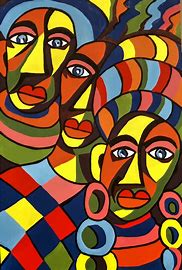Is brown rice good for the liver? Find out what the experts say














Is brown rice good for the liver? Find out what the experts say
Expert opinion from Maria Arienti
Postgraduate in Nutritional Support/Bachelor in Nutrition · 13 years of experience · Argentina
Foods that are high in fiber, such as brown rice, can help protect your liver from inflammation. They also may help to regulate blood sugar and electrolytes.
Expert opinion from Deidre Huysamen
Dietician - Dietetics and Clinical Nutrition Services · 7 years of experience · South Africa
Brown rice is a high fiber food. The high fiber content can help to reduce inflammation which can help to protect against various diseases such as liver disease. It can also help to reduce inflammation for those with liver disease.
Expert opinion from Feni Sulistiani
Bachelor's degree Nutrition · 3 years of experience · Indonesia
Brown rice is a complex carbohydrate that includes vitamin B and fiber. Brown rice contains elements that promote liver health. For those with liver disease, the fiber contained in brown rice ameliorates health improvement.
'A widespread imbalance' of gut microbiome could lead to Parkinson's disease - new study
















'A widespread imbalance' of gut microbiome could lead to Parkinson's disease - new study
The US research team, based at the University of Alabama at Birmingham, noted the gut microbiome is involved in multiple pathways in the pathogenesis of the brain disorder. For the analysis, the investigators looked at the genetic material recovered from stool microbiome in those with and without Parkinson's disease. There were 490 people enrolled in the study who had Parkinson's, in addition to 234 healthy controls.
All participants were from the Deep South region of the United States, which helped to eliminate confounding geographic and cultural influence on the gut microbiome.
Professor Haydeh Payami said: "The primary aim of this study was to generate a full, unaltered view of the imbalance in Parkinson's disease gut microbiome.
Professor Haydeh Payami said: "The primary aim of this study was to generate a full, unaltered view of the imbalance in Parkinson's disease gut microbiome.
"We found evidence for multiple mechanisms that we know are linked to Parkinson's disease.
"But we didn't know they were happening in the gut also and are orchestrated by the microbiome."
The researchers studied 257 species of organisms in the microbiome, and of these, analysis indicated 84 (more than 30 percent) were associated with Parkinson's disease.
Professor Payami added: "Of the 84 species [associated with Parkinson's disease], 55 had abnormally high abundance in persons with Parkinson's disease, and 29 were depleted.
"We found that over 30 percent of the micro-organisms and bacterial genes and pathways tested have altered abundances in Parkinson's disease, which indicates a widespread imbalance."
Calling the research "exciting", Professor Payami is planning on continuing the study with a larger sample size.
We anticipate that in the near future we will have the tools and the analytic power to use metagenomics as a new approach to study Parkinson's disease heterogeneity," he said.
"[To] investigate the potential in manipulating the microbiome to prevent, treat and halt the progression of Parkinson's disease."
Parkinson's disease
The progressive neurological condition affects around 145,000 people in the UK, Parkinson's UK says.
"It's the fastest growing neurological condition in the world," the charity points out.
Parkinson's disease occurs when nerve cells in the brain, which are responsible for making dopamine, have died.
When the level of dopamine begins to deplete in the brain, physical manifestations start to take hold.
One of the main symptoms of the neurological brain condition is an uncontrollable tremor.
While not everybody will experience this symptom, other signs of Parkinson's disease can include:
- Stiffness
- Slowness of movement
- Mild memory and thinking problems
- Sleep problems
- Pain.

There are over 40 symptoms of Parkinson's disease, but people's experience of the condition can vary.
If you suspect you could have Parkinson's disease, it would be beneficial to note down the symptoms you are experiencing that are concerning you.
By detailing your experience to a doctor, further investigation can begin to identify the underlying cause, which may or may not be Parkinson's disease.
The research paper is published in the journal Nature Communications.
Reference: Daily Express: Chanel Georgina -
Tempeh vs Tofu: Which is healthier? Find out what the experts say














Tempeh vs Tofu: Which is healthier? Find out what the experts say
Harley L. Doerr, Jen Hsu, Toni Tran, Caroline Luiza C. Castro, Marcelli F. Chagas - 9 Nov 2022
Black patients reveal trauma of organ donor shortage after decade-long wait

















Black patients reveal trauma of organ donor shortage after decade-long wait
A woman has described the trauma of watching family members wait more than a decade for an organ transplant before she herself was diagnosed with kidney failure, as NHS figures show Black and Asian people wait six months longer for a donor.
Six in ten (62 per cent) of those on a waiting list for an organ transplant in London were of Black or Asian heritage in March 2022, according to data released by NHS Blood and Transplant (NBSBT) on Thursday.
Primrose Granville, 54, a broadcaster from Bristol, was born with polycystic kidney disease, a largely hereditary condition that’s sadly claimed the lives of at least five of her family members.
he said the horror of seeing her mother and sister suffer for years on dialysis awaiting their transplants led to a “crippling fear” when she was told she would also need a donor. She received a new kidney in a “miraculous” turn of fate after six months; the average waiting time is two to three years.
“When you’re waiting for a transplant, every single second counts,” Ms Granville told The Independent. “Coming from a family history where people waited a decade and then some, I grappled with the trauma of that prospect.

“I saw my mother and sister suffering while receiving dialysis and that was traumatic; that fear crippled me more than the kidney failure I was diagnosed with,” Ms Granville continued. “Miraculously, I received my new kidney quite quickly - after just six months and one day.”
According to the new figures, a growing number of ethnic minorities in the UK continue to wait for lifesaving transplants, with thousands left “in limbo”; the best match for an organ comes from someone of the same ethnicity.
During the “agonising” countdown for a new kidney, Ms Granville felt like a “hypocrite” because few people knew that she was living with end-stage renal failure.
“I existed in a bubble, telling myself that this wasn’t happening to me and, therefore, if I didn’t talk about what I was going through then it wouldn’t be real,” she said. “It was a tale of two realities; by day, I was happy and campaigning, telling people to join the donations list but by night, I was crying into my pillow.”
“My transplant means the world to me,” she added.
Since receiving her new kidney in 2018, Ms Granville has ramped up her campaign of encouraging more Black and Asian people to donate organs. The fight is far from over as her son Adam, 23, also has polycystic kidney disease and will need a transplant one day.
However, she is aware of the various strands that fuel organ donation hesitancy among some of these groups and feels the government needs to pump more funding into organ donation campaigns to raise greater awareness.
“When you go to Black and Asian communities asking them to donate organs, you will hear accounts of issues like mistrust in healthcare, religion, the constant reminder that we’re usually last to be cared for due to health inequities. Issues like this fuel the organ shortage we’re seeing.”

Belinda Otas, from London, is currently waiting on dialysis for her third kidney transplant which she describes it as “the gift of a second chance”.
“Living on dialysis is like living in limbo, you cannot plan and it defines your whole life,” the 43-year-old said. “My first kidney transplant changed my life; I was free from dialysis and felt I was given a second chance. I could study again and at the age of 25 I began a degree at university.
“There is hope; by talking about organ donation and joining the register, you are agreeing to give someone that gift of a second chance.”
Family consent or authorisation is still much lower for potential donors from ethnic minority backgrounds.

Overall consent rates were 40% for ethnic minority donors last year, compared to 71% for white potential donors, similar to rates from the previous year. Families not knowing what their loved one wanted remains one of the main reasons for organ donation not going ahead.
Aspiring nurse Maham Majeed, 21, passed away suddenly in May 2021 and, having joined the NHS Organ Donor Register, was able to help many others, donating her liver, kidneys, heart, corneas and bones.
Maham’s mum Nazia, a primary school teacher, says: “Maham was a compassionate human being who would help anyone. I remember she mentioned wanting to be an organ donor, but I never knew she had joined the register at 18 until she passed away.
“My initial reaction was ‘I can’t let anyone take anything out of my baby’s body’ but my eldest daughter, Farina, said we should respect Maham’s final wish and it would not be right to stop it. We found a card in her wallet too so it was clear and gave us a lot of comfort to be able to honour and respect her decision.
“In our community, people are not aware of organ donation, I want to make them aware it is something they should consider. In the Muslim religion, the most important thing is life, and saving a life – there is nothing bigger. Saving lives is more important than burying healthy organs.”
Articles - Most Read
- Home
- LIVER DIS-EASE AND GALL BLADDER DIS-EASE
- Contacts
- African Wholistics - Medicines, Machines and Ignorance
- African Wholistics -The Overlooked Revolution
- African Holistics - Seduced by Ignorance and Research
- The Children of the Sun-3
- Kidney Stones-African Holistic Health
- The Serpent and the RainBow-The Jaguar - 2
- PART ONE: DIS-EASE TREATMENT AND HEALTH-3
- 'Tortured' and shackled pupils freed from Nigerian Islamic school
- King Leopold's Ghost - Introduction
- PART ONE: DIS-EASE TREATMENT AND HEALTH-4
- PART ONE: DIS-EASE TREATMENT AND HEALTH-2
- PART ONE: DIS-EASE TREATMENT AND HEALTH-5
- African Wholistics - Medicine
- Menopause
- The Black Pharaohs Nubian Pharaohs of Ancient Egypt
- The Mystery System
- PART ONE: DIS-EASE TREATMENT AND HEALTH-6
Who's On Line?
We have 149 guests and no members online
Ad Agency Remote
Articles - Latest
- The Male G Spot Is Real—and It's the Secret to an Unbelievable Orgasm
- Herbs for Parasitic Infections
- Vaginal Care - From Pubes to Lubes: 8 Ways to Keep Your Vagina Happy
- 5 Negative Side Effects Of Anal Sex
- Your Herbs and Spices Might Contain Arsenic, Cadmium, and Lead
- Struggling COVID-19 Vaccines From AstraZeneca, BioNTech/Pfizer, Moderna Cut Incidence Of Arterial Thromboses That Cause Heart Attacks, Strokes, British Study Shows
- Cartilage comfort - Natural Solutions
- Stop Overthinking Now: 18 Ways to Control Your Mind Again
- Groundbreaking method profiles gene activity in the living brain
- Top 5 health benefits of quinoa
- Chromolaena odorata - Jackanna Bush
- Quickly Drain You Lymph System Using Theses Simple Techniques to Boost Immunity and Remove Toxins
- Doctors from Nigeria 'facing exploitation' in UK
- Amaranth, callaloo, bayam, chauli
- 9 Impressive Benefits of Horsetail
- Collagen The Age-Defying Secret Of The Stars + Popular Products in 2025
- Sarcopenia With Aging
- How to Travel as a Senior (20 Simple Tips)
- Everything you need to know about mangosteen




